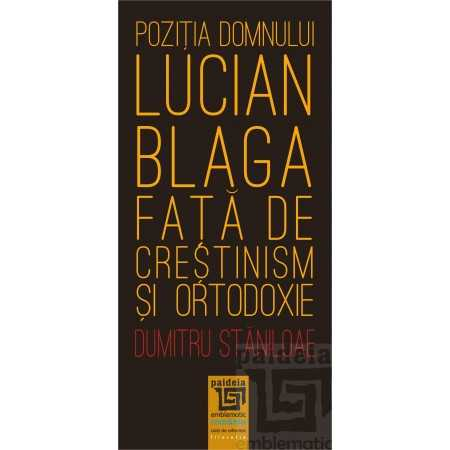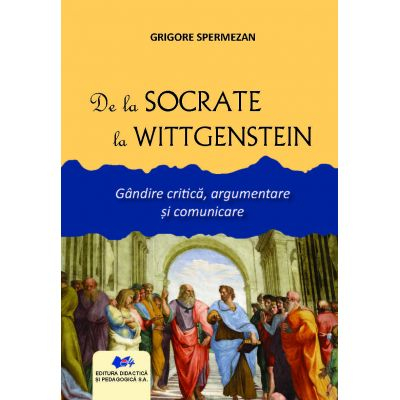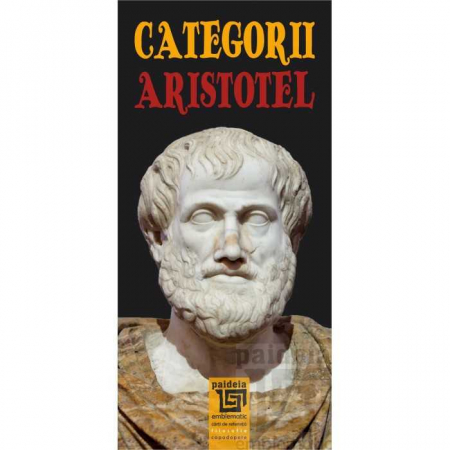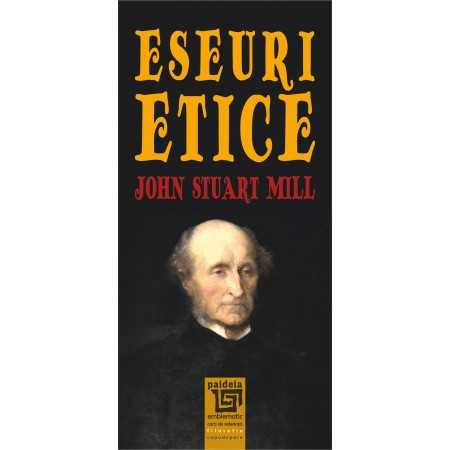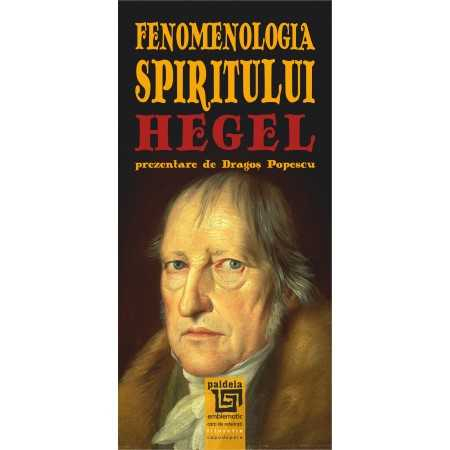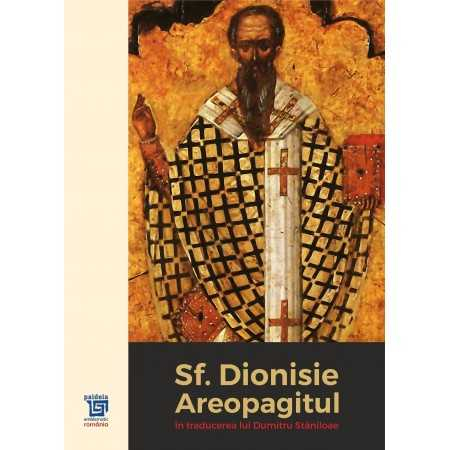Propuneri manuscrise: [email protected]: 0745 204 115
Urmărire comenzi Persoane fizice / Vânzări: 0745 200 357 / Comenzi Persoane juridice: 0721 722 783
ISBN: 978-973-749-538-9
Anul publicării: 2009
Ediția: I
Pagini: 370
Editura: Editura Universitară
Autor: Corneliu Boingeanu
- Descriere
- Download (1)
- Cuprins
- Autori
- Review-uri (0)
This study attempts to demonstrate that a trinitarian discourse requires an antinomic grammar (a conceptual unity of two opposite notions) in order to express accurately God’s economic manifestations. As it is acknowledged the notion “trinity” has been used initially as an epistemic construct, a hermeneutical key, for decoding God’s antinomic existence: one nature and three divine Persons. However, God’s trinitarian manifestation in the economy also requires an antinomic grammar. The whole spectrum of God’s economic activity displays a dichotic polarity between His transcendence and immanence (absence and presence). Of course, some theologians have been fascinated by the power of “presence” with all its theological implications. Hence, theologians like Moltmann have developed a cataphatic epistemology about God as Trinity in a manner in which both the logical parameters of theological discourse and divine immanence were preferred to the doxological parameters of divine transcendence. Although, cataphatically, theological discourse acquires important elements of truth for both our epistemological construct about God as Trinity and our ontological relationship with Him, a cataphatic grammar, it is argued, still limits our cognitive universe. More problematic is that cataphatic epistemology uses a noetic grammar for its trinitarian discourse which tends not only to dominate such a conceptual universe but also leads inevitably to a declaration of God’s death in immanence. Alternatively, other theologians, like Lossky, have been fascinated by the mystery of “absence” to which they have assigned an apophatic grammar in order to express it adequately. Apart from its exotic attractiveness to Christian epistemology and its transcendental referential aim, a merely apophatic grammar, it is argued, leads inevitably to a declaration of God’s death in transcendence. In this case “trinity”, as a hermeneutical grammar, becomes a reality in itself and replaces God’s own existence. However, the appropriate solution to this hermeneutical dilemma is an antinomic grammar that operates as a balance between absence and presence. Theologically, an antinomy, in addition to its philosophical meaning, stresses not only the unity between absence and presence but also the distinction between them with the view to express their ontic-noetic tension. Thus, a theological antinomy sets a dynamic “boundary” between transcendence and immanence which emphasises, in turn, their correspondence in the way that immanence participates in transcendence and transcendence reclaims its immanence.
-
Between absence and presence
Descarcă
Abstract / 9
Acknowledgements / 10
INTRODUCTION / 11
1. Prolegomena / 11
2. The Debate / 16
PART I: THE ABSENT PRESENCE OF THE TRINITY IN THE ECONOMY / 25
I. Eternity and Temporality in Divine Life: Absence and Presence in Human Life / 25
1. Temporality versus Eternity / 27
2. Absence versus Presence / 30
3. Oneness versus Threeness / 34
4. Theology versus Praxis / 38
5. Summary / 42
II. Expression and Absence Terminologies / 45
1. The grammar of deconstruction / 45
2. The grammar of faith / 48
3. The grammar of love / 53
III. Apophatic and Cataphatic Theologies / 57
1. The Apophatic Tradition and Language / 59
1.1. Clement of Alexandria: apophaticism in embryo / 60
1.2. The Cappadocian Fathers: apophaticism in balance / 62
1.3. Pseudo-Dionysius the Areopagite: apophaticism in the extreme / 64
1.4. Summary / 68
2. Apophaticism and Deconstruction / 69
IV. Self-identity, Silence and Presence of God as Trinity / 72
1. The Trinity’s Self-Identity: Silence and its Echo in Ecclesiology / 73
1.1. God’s elusive presence in His Revelation / 74
1.1.1. The elusive presence of God the Father / 77
1.1.2. The Elusive Presence of God the Son / 84
1.1.3. The Elusive Presence of God the Holy Spirit / 89
1.1.4. Conclusion / 93
1.2. The Trinity’s Elusiveness in Theology / 95
2. The Trinity’s Self-Identity: Presence and its Model for Ecclesiology / 103
2.1. Historical background of the ontology of relations / 104
2.2. The ontology of relations and the Church / 112
2.3. The Holy Trinity as an experiential Foundation / 119
2.3.1. Social conflict between one and many / 120
2.3.2. Divine synthesis between one and many / 124
V. Evaluation and Critique: The Quest for a Re-examination of the Trinitarian Description / 133
1. Epistemological debate / 134
2. Ontological debate / 136
3. Towards a re-examination of theological grammar / 137
PART II: JÜRGEN MOLTMANN: A CATAPHATIC EPISTEMOLOGY OF THE TRINITY / 138
I. Modus Operandi: The Dialectical grammar of the Trinity / 142
1. Dialectic and Analogy / 143
2. Dialectic and History / 147
2.1. Dialectical history of resurrection / 148
2.2. Dialectical history of time/ 151
2.3. Dialectical love of God’s history with the world / 156
3. Dialectic and the Christ Event / 158
3.1. The paradox of the cross / 160
3.1.1. Epistemological paradox / 160
3.1.2. Ontological paradox /163
3.2. The paradox of resurrection / 166
4. Conclusion / 168
II. Modus Cognoscendi: The Cataphatic Grammar of Creation /171
1. God’s Revelation and Creation / 171
1.1. Participative knowledge of God / 172
1.2. Eschatological Language of Revelation / 173
1.3. Ontological proof of God / 180
1.4. Kerygmatic hermeneutics of the Church / 184
1.5. Messianic theology of Creation / 186
2. Christology and Creation / 190
2.1. Christology in historic shape / 190
2.2. History in divine shape / 193
3. Pneumatology and Creation / 197
3.1. Cataphatic Pneumatology / 198
3.2. Pragmatic Pneumatology / 200
4. Trinity and Creation / 204
4.1. Perichoretic ontology of the Trinity / 208
4.1.1. Father-Son perichoresis / 209
4.1.2. Father-Spirit perichoresis / 212
4.1.3. Son-Spirit perichoresis / 215
4.2. Inner-trinitarian epistemology of God the Creator / 217
5. Conclusion / 225
PART III: VLADIMIR LOSSKY: AN APOPHATIC EPISTEMOLOGY OF THE TRINITY / 228
I. Modus Operandi: Apodictic Methodology / 230
1. The Apodictic Antinomy of Christian Theology / 231
2. The Apodictic Union with God / 235
3. The Apodictic ‘Instant’ of Eternity in Time / 240
4. Conclusion / 244
II. Modus Cognoscendi: Apophatic Epistemology / 245
1. Revelation: The Apophatic Grammar of the Trinity / 246
1.1. Beatific vision / 248
1.1.1. Clement’s Epistemology according to Lossky / 251
1.1.2. Origen’s Epistemology according to Lossky / 255
1.1.3. The Cappadocians’ Epistemology according to Lossky / 258
1.1.4. Dionysius’ Epistemology according to Lossky / 265
1.1.5. Maximus’ Epistemology according to Lossky / 269
1.1.6. Palamas’ Epistemology according to Lossky / 272
1.2. The mystical knowledge of God / 276
1.3. The enigmatic nature of the uncreated energies / 282
1.4. Conclusion / 286
2. Creation: The Lost Grammar of the Trinity / 289
3. Christ: The Economy of the Word / 294
4. Holy Spirit: The Economy of the Third Person / 298
5. The Holy Trinity: The Divine Persons without Economy / 304
6. Conclusion / 309
CONCLUSION: BETWEEN ABSENCE AND PRESENCE / 312
1. The strengths and limits of “presence” / 312
2. The strengths and limits of “absence” / 316
3. Towards the antinomic grammar of the Trinity / 320
List of Abbreviations / 327
Bibliography I –Primary Texts / 329
Bibliography II – General Works / 334
Bibliography III – Works on Moltmann and by Moltmann / 354
Bibliography IV – Works on Lossky and by Lossky / 367

6359.png)
![Between absence and presence - Corneliu Boingeanu [1] Between absence and presence - Corneliu Boingeanu [1]](https://gomagcdn.ro/domains/editurauniversitara.ro/files/product/large/between-absence-and-presence-2494-405440.jpg)
